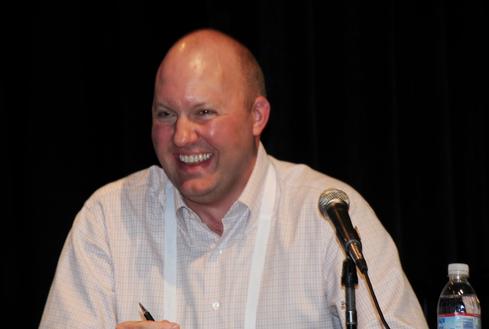Venture capitalist Marc Andreessen describes our schizophrenic view on risk-taking, and an innovation exec offers some practical tips.

We all know that companies need to encourage employees to take risks while accepting some failure. And often this risk-taking is couched in a philosophy of "fail fast," which at some companies is code for "you can fail only if no one actually ever notices that you failed. Or took a risk."
I got to thinking about the mixed messages we send about taking risk after reading The Wall Street Journal's interview with venture capitalist Marc Andreessen. Asked if failure is a good or bad thing in the tech startup world, Andreessen acknowledged he's schizophrenic on the subject. On the one hand, he says:
This whole thing where failure is somehow good in Silicon Valley, or failure is OK, or failure is wonderful, or failure is part of the process, is just a bunch of nonsense, and is actually a destructive sort of meme because it gives people an easy excuse to give up. If you look at a lot of the great successes in corporate history and in technology, they required real determination and real staying power.
["Intel inside" -- everything? Read Intel CEO: 'Make Everything Smart'.]
His other side, though, understands the need for a business culture that accepts some failure. That culture can be difficult to create at established companies, where failure has a long memory and where leaving to try something new can mean your chair is gone when you come back. Says Andreessen:
You really can't just give up the minute things get hard. But at the same time, not everything works. And when something doesn't work, it shouldn't end your career. It should just inform the next thing you do. And that's kind of how the Valley works.
The oft-repeated "fail fast" idea doesn't fit neatly into either of Andreessen's two views of failure. People need staying power and long-term support to succeed at a given project, and failure can't come with such a stigma that it's acceptable only if it's ultra-low-profile and low-cost.
Which brings me to a highly practical approach to failing fast that I heard recently from Worthington Industries VP Michael Luh, a former innovation exec at Procter & Gamble who's now leading an innovation effort at the steelmaker. (Luh and I were on a panel together at the TechTomorrow event in Columbus, Ohio.)
Luh does advocate failing fast and cheaply, but he emphasizes that approach because disruptive innovation has maybe a 10% success rate, so you can't invest in every project. "I've killed thousands of projects," Luh says. "… You need to be very disciplined if you're not going to lose your shirt." One essential tactic, he says, is to know very clearly why you're killing a proposed project.
And so Luh's fail fast strategy requires stakeholders to identify the hardest elements of a would-be project -- the "killer issues" -- and tackle those first.
Is the performance of the product to be developed the big hurdle? Is it distribution, because your new product's less profitable to the existing channel? Is the potential market not big enough to interest the company? Are internal incentives or the organization a barrier?
Survival instinct tells us to avoid these kinds of deal-breakers early on and instead build up some momentum with easier wins. With Luh's approach, "failing fast" is about making sure your company isn't going to spend $10 million engineering a dazzling product that you figured out at the start you had no way to sell.
Too many companies treat digital and mobile strategies as pet projects. Here are four ideas to shake up your company. Also in the Digital Disruption issue of InformationWeek: Six enduring truths about selecting enterprise software. (Free registration required.)
About the Author(s)
You May Also Like







